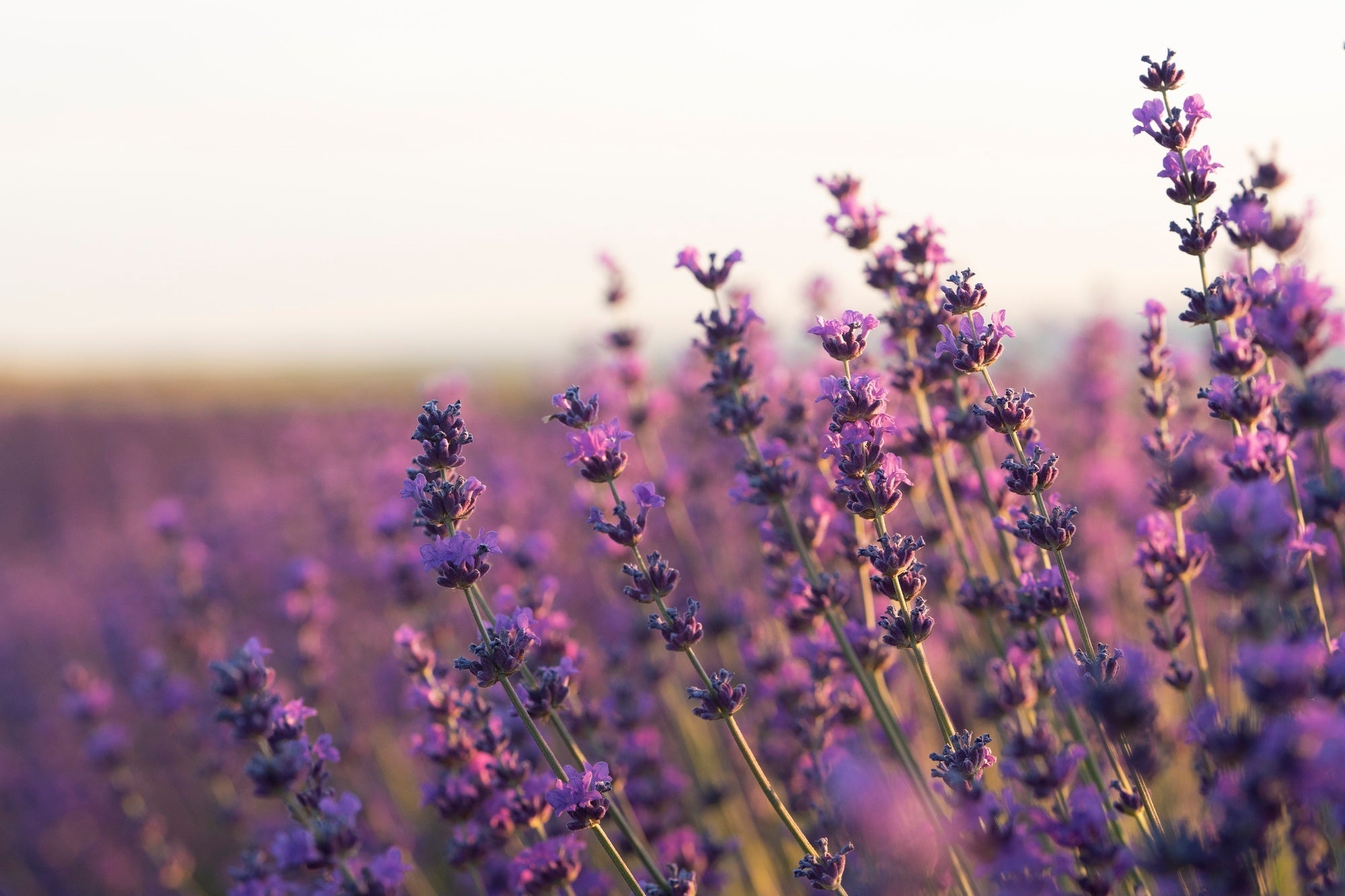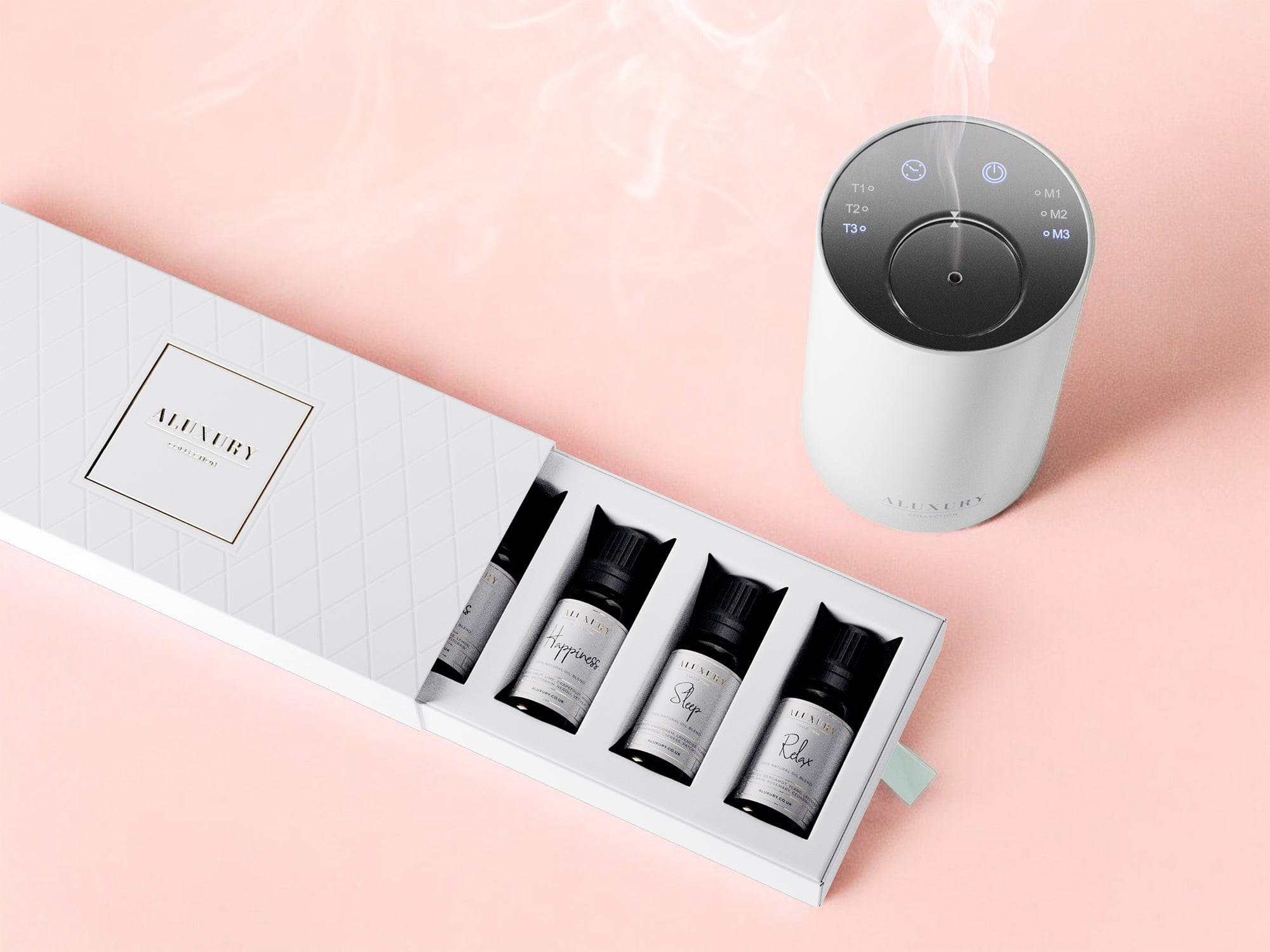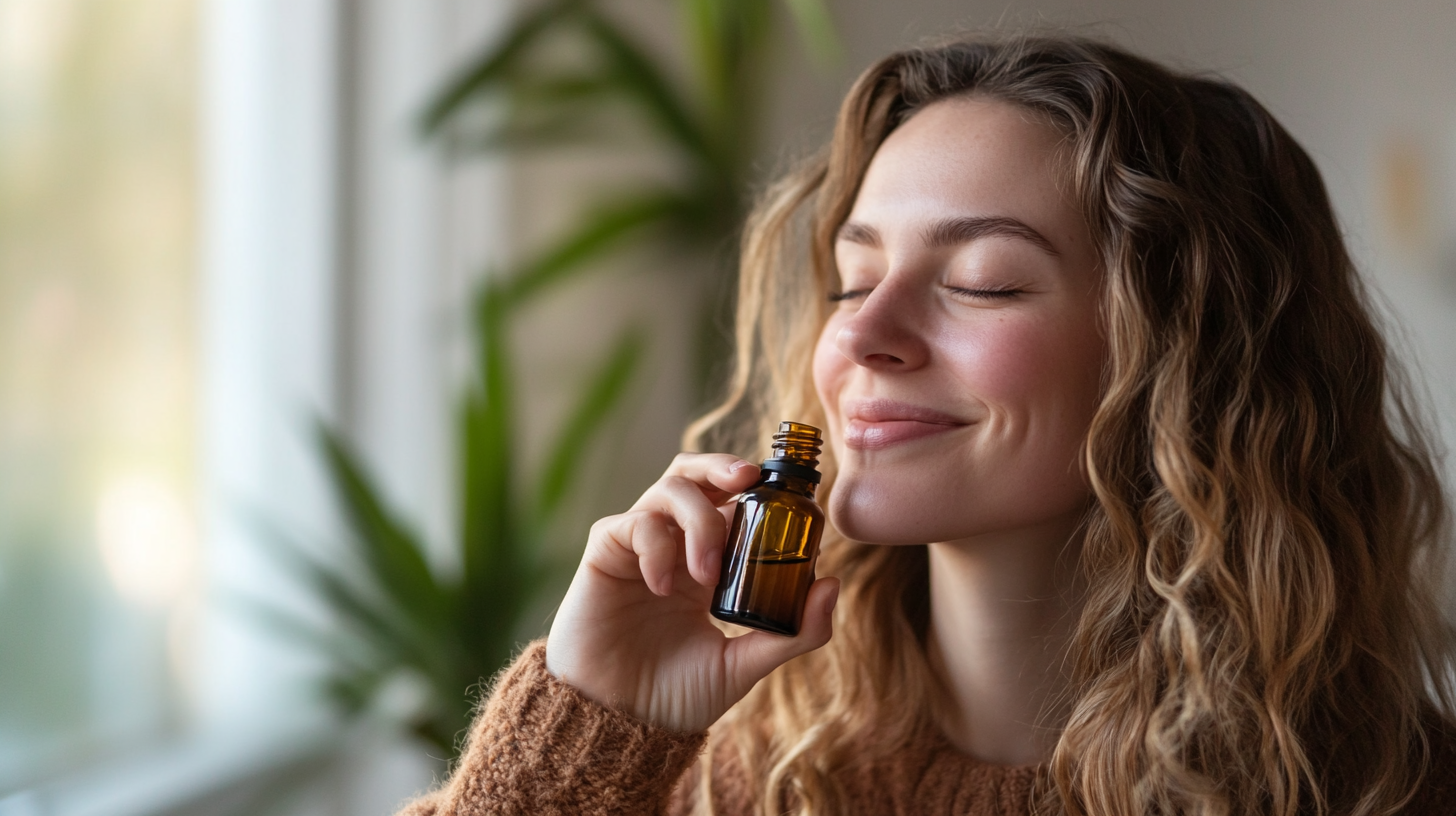Lavender essential oil is one of the most popular and versatile oils in aromatherapy, known for its calming scent and numerous therapeutic applications. Derived from the flowering spikes of Lavandula angustifolia, true lavender has been valued for centuries across different cultures for its medicinal properties and pleasant aroma. In this comprehensive guide, we'll explore the evidence-backed benefits of lavender essential oil, how it works, and the best ways to incorporate it into your wellness routine.
The Historical Significance of Lavender
Lavandula angustifolia, commonly known as true lavender, has a rich historical background. Native to northern Africa and the Mediterranean mountainous regions, lavender has been traditionally employed for various ailments, including mood disorders, anxiety, and depression. Its significance extends back to medieval times, where it served as a source for drugs, perfumes, soaps, flavourings, and various crafts, highlighting its long-standing importance across different aspects of daily life.
The consistent historical use of lavender across diverse cultures suggests the presence of bioactive compounds with potentially varied therapeutic effects, which modern scientific research continues to investigate and validate.

Scientifically-Proven Benefits of Lavender Essential Oil
1. Sleep Enhancement and Relaxation
Perhaps the most well-known application of lavender essential oil is its ability to promote better sleep. Multiple scientific studies have demonstrated its effectiveness in improving sleep quality across different populations.
A 2022 study found that lavender improved sleep quality in individuals without pre-existing sleep disorders. Another study from 2020 showed that lavender oil enhanced sleep in patients receiving palliative care. Furthermore, patients undergoing chemotherapy reported improved sleep quality after inhaling essential oils, including lavender, over a period of three weeks.
A systematic review from 2014 concluded that inhaling essential oils, including lavender, had positive effects on people with mild sleep disturbances. Research in 2015 showed that individuals who used lavender aromatherapy reported feeling more refreshed upon waking.
For those struggling with insomnia, a 2005 study reported in the Journal of Alternative and Complementary Medicine found that individuals using lavender oil experienced a reduction in their insomnia score. A more recent 2023 study focused on postmenopausal women with insomnia and found that the inhalation of lavender oil, combined with sleep hygiene practices, significantly improved their quality of life, total sleep time, and sleep efficiency.
When diffused through an electric oil diffuser, lavender essential oil can create a calming atmosphere that supports restful sleep and relaxation.
2. Anxiety and Stress Reduction
The anxiolytic (anxiety-reducing) properties of lavender essential oil have been extensively studied and validated by scientific research.
A 2023 systematic review concluded that lavender essential oil inhalation is a safe and effective treatment for anxiety, demonstrating reduced anxiety levels regardless of the lavender species used. Studies have shown its effectiveness in various anxiety-inducing situations, including preoperative anxiety, chest tube removal, cosmetic procedures, and intensive care unit stays.
One study showed that postpartum women with anxiety experienced lower levels of anxiety after using a blend of rose and lavender oil. A 2019 meta-analysis indicated that individuals with anxiety disorders who took 160-milligram lavender oil capsules experienced significant reductions in anxiety.
Particularly impressive is a six-week study that found an oral lavender oil preparation to be as effective as a daily dose of lorazepam, an anti-anxiety drug, in patients with generalized anxiety. This suggests that lavender could potentially offer a natural alternative to conventional anxiety treatments, though medical advice should always be sought before replacing prescribed medications.
3. Skin Health and Wound Healing
Lavender essential oil has shown significant potential in promoting skin health and wound healing. A 2020 study found that an ointment containing lavender essential oil and licorice extract promoted wound healing in different stages of wound closure.
Research has shown that lavender essential oil can promote wound healing by accelerating the rate of healing, increasing the expression of collagen, which is vital for skin elasticity, and enhancing the activity of proteins involved in rebuilding tissue. A review of 20 studies found that lavender oil increased the rate of wound healing, promoted the growth of collagen, and boosted the tissue remodeling process of the skin.
In a 2016 study, lavender enhanced wound healing in rodents through collagen synthesis and granulation tissue formation, leading to a significant reduction in wound size. Furthermore, a 2013 study demonstrated that topical application of lavender oil in a rat model accelerated wound closure and increased the expression of growth factors such as PDGF-A and EGF, which play important roles in tissue remodeling and re-epithelialization.
Lavender oil possesses soothing, anti-inflammatory, antimicrobial, and purifying properties beneficial for the skin, making it a valuable addition to skincare routines.
4. Pain Relief and Anti-Inflammatory Properties
The pain-relieving and anti-inflammatory properties of lavender essential oil make it a potential natural remedy for various types of pain.
A 2013 study suggested that lavender essential oil may help treat pain in children after a tonsillectomy, leading to a reduction in their daily dose of acetaminophen. Researchers in a 2015 study found that diluted lavender essential oil applied topically provided pain relief comparable to the prescription medication tramadol.
A 2012 study showed that inhaling the scent of lavender was effective in lessening the severity of migraine headache symptoms. A systematic review and meta-analysis found a significant positive effect of aromatherapy, including lavender, in reducing pain reported on a visual analog scale, particularly for postoperative and obstetrical and gynecological pain.
Studies on animal models have also demonstrated the anti-inflammatory properties of lavender essential oil, with one study on mice with colitis showing reduced levels of inflammatory cytokines after injecting the oil. In vitro research has indicated that lavender essential oil can inhibit the synthesis of pro-inflammatory cytokines, further supporting its anti-inflammatory potential.
5. Antimicrobial Properties
Scientific evidence supports the antimicrobial properties of lavender essential oil. A 2022 review concluded that lavender essential oil has antimicrobial properties and could be valuable in dentistry to help prevent infection.
Lavender essential oil has been found to be effective against microorganisms such as Staphylococcus aureus, Escherichia coli, Candida albicans, Aspergillus nidulans, and Trichophyton mentagrophytes. The primary mechanism of action against bacteria is believed to involve disruption of the cell wall, leading to leakage of cytoplasmic content.
These antimicrobial properties contribute to lavender's effectiveness in wound healing and skin health, as well as its potential as a natural preservative in products like cosmetics.
How Lavender Essential Oil Works: Mechanisms of Action
The therapeutic effects of lavender essential oil are mediated through various complex biological mechanisms, which explain its diverse range of benefits.
For Sleep and Relaxation
Inhalation of lavender appears to primarily affect the amygdala, the part of the brain associated with emotion, survival instinct, and memory, as well as the hippocampus, involved in long and short-term memory and spatial awareness. Lavender also influences acetylcholine (ACh) transmission, an important neurotransmitter, and has an inhibitory effect on the sympathetic nervous system (SNS) via the activation of histamine receptors, contributing to its anxiolytic and calming effects.
Moreover, lavender stimulates the GABA neurotransmitter pathway, which is known to have a calming effect on the nervous system, similar to how benzodiazepines work. Linalool, a major component of lavender oil, has been shown to decrease levels of ACh in mice, potentially contributing to its anxiolytic and calming properties.
EEG recordings during lavender inhalation often show increased alpha wave brain activity, which is associated with relaxation. Additionally, lavender may aid sleep by assisting in the production of melatonin, the sleep hormone, through its action on GABA receptors.
For Skin Health and Wound Healing
Lavender can enhance wound healing through collagen synthesis and granulation tissue formation. The soothing and pain-relieving properties of true lavender essential oil are attributed to linalool and linalyl acetate, which can inhibit certain nociceptors responsible for transmitting pain.
These compounds also promote the synthesis of HSP70 proteins, contributing to its anti-inflammatory action. The antibacterial properties are linked to linalool, 1,8-cineole, and terpenes, which work synergistically to limit the proliferation of bacteria by altering their external membranes.
Camphor, another component, is believed to improve blood circulation and activate collagen synthesis, contributing to the regenerative properties of lavender oil. Studies suggest that lavender oil has the potential to promote wound healing in the early phase by accelerating the formation of granulation tissue, tissue remodeling through collagen replacement, and wound contraction.
For Pain Relief and Anti-Inflammatory Effects
The lipophilic components of lavender may interact with cell membranes and alter the function of ion channels, carriers, and nerve receptors, potentially contributing to its pain-relieving effects. Essential oils, including lavender, can modulate the activity of pain receptors, neurotransmitters, inflammatory mediators, and immune cells.
Lavender oil has been shown to inhibit lipopolysaccharide-induced inflammatory reactions. The anti-inflammatory activity of lavender essential oil may involve the participation of prostanoids, NO, proinflammatory cytokines, and histamine. Studies have indicated that lavender essential oil extracted at the beginning of the flowering period is a potent inhibitor of the synthesis of four pro-inflammatory cytokines.
The analgesic effect of lavender essential oil is also attributed to compounds such as linalool and linalyl acetate, which have the ability to block the transmission of pain signals within the peripheral nervous system. These compounds also exhibit anti-inflammatory and antioxidant effects.
Effective Ways to Use Lavender Essential Oil
There are various methods to incorporate lavender essential oil into your wellness routine, allowing you to choose the most suitable approach for your specific needs:
Inhalation
One of the most common ways to use lavender essential oil is through inhalation, which is particularly effective for its effects on mood, stress, and sleep:
- Add a few drops to an electric oil diffuser to disperse the aroma throughout a room
- Direct inhalation from the bottle or by placing a few drops on a cloth or tissue and inhaling deeply
- Steam inhalation by adding a few drops to a bowl of hot water and inhaling the steam with a towel draped over the head
- Personal inhalers or aroma sticks infused with lavender oil for on-the-go use
Topical Application
Lavender essential oil can be applied topically to address various issues, such as skin conditions, minor wounds, and localized pain:
- Always dilute lavender oil with a carrier oil, such as coconut oil, jojoba oil, or sweet almond oil, before applying it to the skin
- For massage, use diluted lavender essential oil to promote relaxation and relieve muscle tension
- Add to baths for a relaxing and aromatic experience (still diluted with a carrier oil or emulsifier)
- For specific skin concerns like acne or eczema, apply diluted lavender oil directly to the affected area
- Use lavender-infused creams, lotions, and salves for topical application
Diffusion
Diffusing lavender essential oil creates a calming atmosphere in any space:
- Ultrasonic diffusers use water and electronic frequencies to disperse the oil effectively
- Diffuse for 30-60 minutes at a time in a well-ventilated room, taking regular breaks
- Place a few drops on a cotton ball or tissue as a simple DIY diffusion method
Explore our collection of premium essential oils to find high-quality lavender oil and other complementary scents that can enhance your aromatherapy experience.
Safety Considerations and Precautions
While lavender essential oil is generally considered safe for most individuals when used appropriately, it's important to be aware of potential side effects and take necessary precautions:
- Always dilute lavender essential oil with a carrier oil before topical application to prevent skin irritation or allergic reactions
- Perform a patch test on a small area of skin before applying more broadly
- Oral consumption of pure lavender essential oil is generally not recommended without professional guidance
- Lavender essential oil may interact with certain medications, particularly those with a sedative effect
- Consult with a healthcare provider before using lavender essential oil if you are taking medications, especially sedatives, narcotics, or anticonvulsants
- Pregnant and breastfeeding women should exercise caution and consult their healthcare provider before use
- Individuals with asthma should consult their doctor before using essential oil inhalations
- Discontinue use immediately if any adverse reactions occur
FAQ: Lavender Essential Oil Benefits
Q1: Can lavender essential oil really help with sleep problems?
A: Yes, scientific research strongly supports the sleep-enhancing properties of lavender essential oil. Multiple studies have shown that lavender inhalation can improve sleep quality in various populations, including those with and without sleep disorders. A 2022 systematic review of 20 randomized controlled trials found that lavender essential oil had positive effects on sleep quality in the majority of studies. The mechanisms involve lavender's ability to stimulate the GABA neurotransmitter pathway, which has a calming effect on the nervous system, and its potential role in assisting melatonin production.
Q2: Is lavender oil as effective as medication for anxiety?
A: Some research suggests that lavender oil preparations can be comparable to certain anti-anxiety medications for mild to moderate anxiety. A notable six-week study found that an oral lavender oil preparation was as effective as a daily dose of lorazepam (an anti-anxiety drug) in patients with generalized anxiety. A 2019 meta-analysis also indicated significant anxiety reduction in individuals who took lavender oil capsules. However, it's important to consult with a healthcare provider before replacing any prescribed medications with natural alternatives.
Q3: How should I dilute lavender essential oil for topical use?
A: For safe topical application, lavender essential oil should always be diluted with a carrier oil such as coconut oil, jojoba oil, sweet almond oil, or olive oil. A general recommendation is a 2-5% dilution for adults (10-25 drops of essential oil per 1 ounce/30ml of carrier oil). For sensitive skin, elderly individuals, or children, a lower dilution of 1% (5 drops per ounce of carrier oil) is advised. Always perform a patch test before broader application to check for potential allergic reactions.
Q4: Can lavender oil help with wound healing?
A: Yes, research supports the wound-healing properties of lavender essential oil. Studies have shown that it can accelerate wound closure, increase collagen production, and enhance tissue regeneration. A 2020 study found that an ointment containing lavender essential oil promoted wound healing in different stages of wound closure. The mechanisms involve lavender's ability to promote collagen synthesis, granulation tissue formation, and its antimicrobial and anti-inflammatory properties that create a favorable environment for healing.
Q5: Are there any side effects or contraindications for using lavender essential oil?
A: While generally considered safe when used appropriately, lavender essential oil can cause skin irritation or allergic reactions in some individuals, which is why dilution and patch testing are recommended. Oral consumption may lead to nausea, vomiting, headache, or diarrhea and should be avoided without professional guidance. There have been some case reports suggesting a possible link between topical use of products containing lavender oil and gynecomastia (breast tissue swelling) in prepubertal boys, so caution is advised in this population. Lavender may also interact with medications that have a sedative effect, so consultation with a healthcare provider is important if you're taking any medications.






Share: